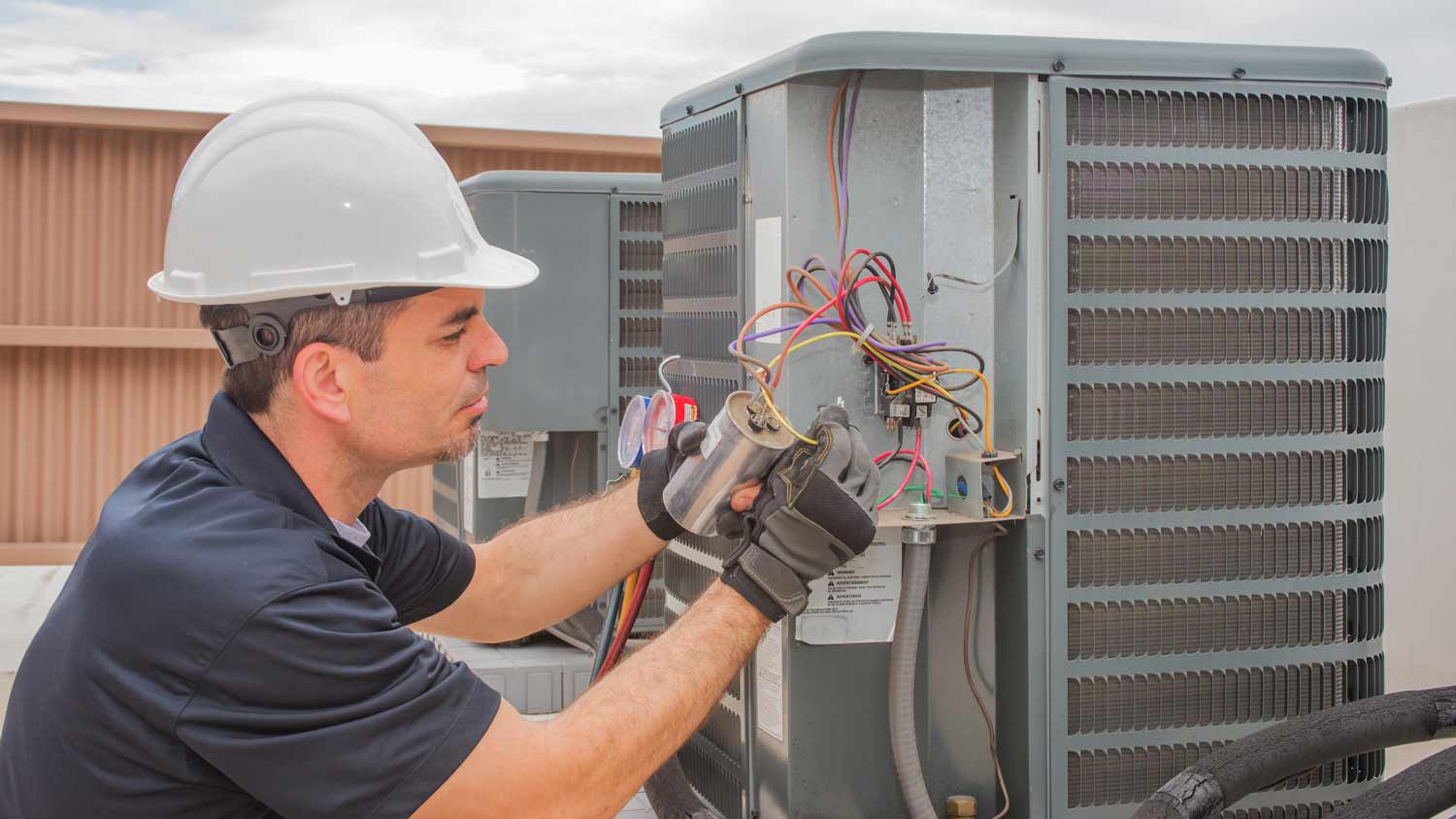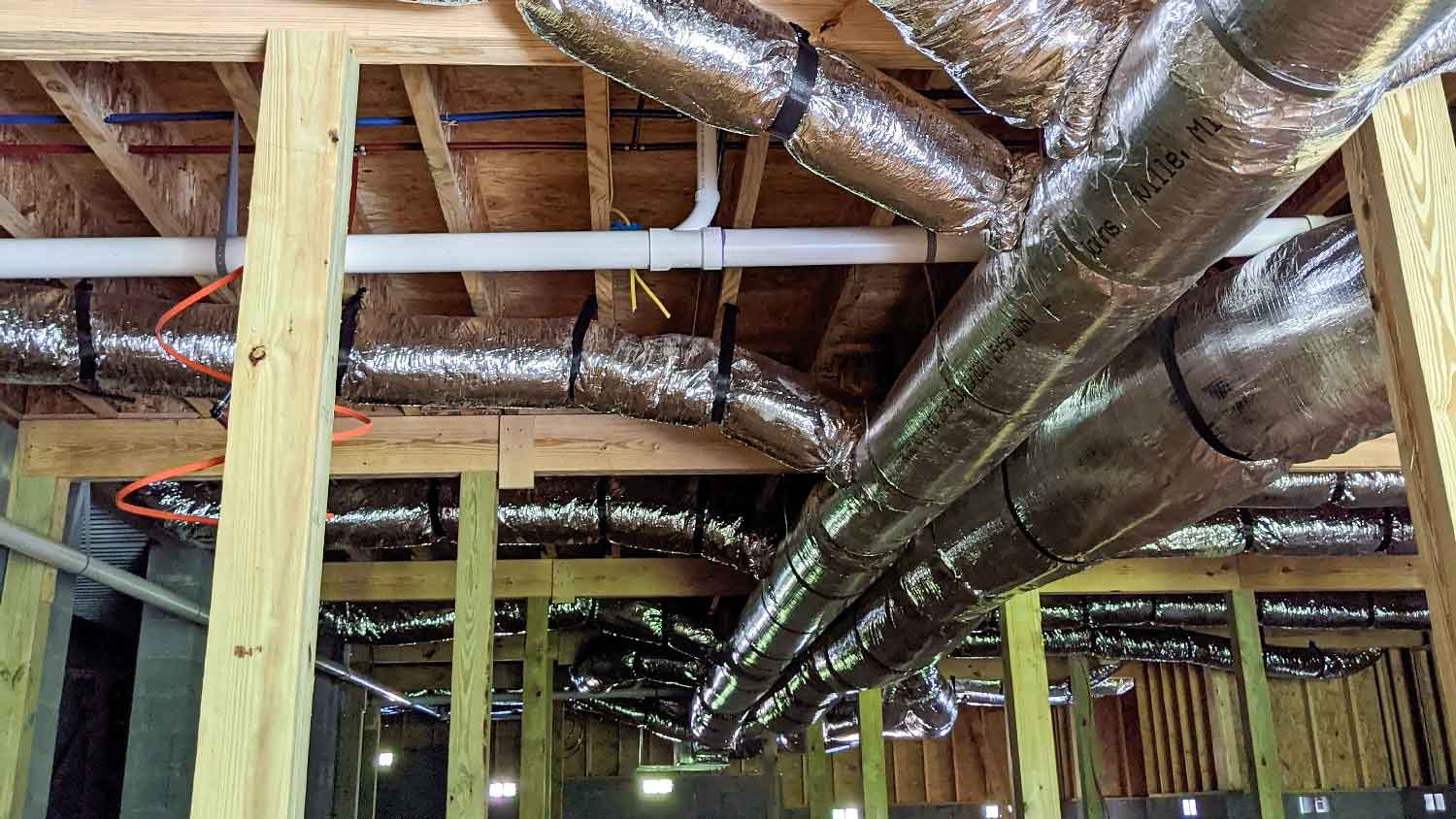
What you’ll pay in Columbus, OH, for furnace repairs depends on many factors. Here’s a breakdown of what can go wrong and the cost to fix those issues.
Keeping a capacitor working is key to keeping cool


When it comes to the hard work an AC unit does to keep you cool, an AC capacitor can be something of an unsung hero. This little metal cylinder, which is a lot like a rechargeable battery, has the important job of giving your AC unit the power boost it needs to get running. But eventually, they wear out and need to be replaced. So, how long does an AC capacitor last, and when should you start shopping for a replacement?
On average, AC capacitors last 10 years, but their life span can range anywhere from five years to 20. You’ll get more life out of your capacitor if you choose a dependable brand and keep up with regular maintenance.
There are many factors that can have an impact on the life span of your AC capacitor. Unfortunately, some of these factors, like the weather, may not be in your control.
Here are some factors that can impact the longevity of your AC capacitor.
If you live in a place with high heat and humidity—like Florida—your AC capacitor may rust and wear out more quickly. (Of course, living in an area with high heat and humidity also means you’ll run your AC more often, which leads to faster wear and tear.)
As is true of all things mechanical, more use means quicker deterioration. So, if you run your AC constantly, your run capacitors may wear out more quickly. On the other hand, your start capacitors may last longer since you’re not starting up the unit very often—you’re just leaving it on.
If you buy your AC from a reputable vendor and have it professionally installed, chances are good that your capacitors will last closer to the larger end of the five- to 20-year span. But if you have a refurbished AC with mismatched parts, an older unit, or if the unit was installed improperly, your capacitor may not last as long.
How can you tell when your AC capacitor may be reaching its capacity? Here are some telltale signs:
The AC unit fails to turn on, or it turns off by itself: Since capacitors are the primary parts involved in starting your AC and keeping it running, these issues can point to a bad capacitor.
Your AC unit is making a humming noise: While there are a lot of reasons an AC might make strange noises, a bad capacitor can be one of them, so it’s worth investigating.
Your electric bills unexpectedly rise: If the price of electricity has remained the same and your usage has, too, utility sticker shock might point to a bad capacitor. A failing capacitor means your unit must work much harder (and use more energy) to get started and stay running.
While some aspects of AC capacitor longevity are out of your control, you may be able to increase the life span of your capacitor by following a few tips.
Give your AC a break sometimes: A capacitor that’s constantly running will likely die sooner than one that occasionally gets to chill out—metaphorically speaking. Be sure to turn your unit off for a few hours every so often so that the capacitor has a chance to fully cool down.
When shopping for an AC unit, don’t skimp on quality: It can be tempting to cut corners and save money, but buying a unit with a mismatched capacitor could cause you headaches down the line. Opt for better quality out of the gate for the best outcomes. Call a pro if you want advice on what unit to buy.

AC capacitors are located deep in the heart of your AC unit, so let a professional service them if you’re suspecting or experiencing trouble. That said, if your AC is acting funny and you think the capacitor may be involved, one simple troubleshooting step worth trying is simply turning the unit off for a few hours and then powering it back on again.
Sometimes, a part—capacitor or otherwise—may just need a chance to cool down to get back to proper working order.
AC capacitors are a fairly affordable part, and they often come with an equipment warranty from the manufacturer. Your home warranty may also cover air conditioning repair, including capacitor issues, so consult your plan if you have one.
If your AC capacitor is bad, don’t worry. The problem rarely means you’ll need a total AC replacement. If you need a new AC capacitor, they cost $100 to $250. In some instances, your local HVAC repair company may be able to repair your existing capacitor, but repair may not be as cost-efficient as replacement. Prices for both repair and replacement rarely exceed $500, so talk to a pro in your area for advice on the best course of action.
From average costs to expert advice, get all the answers you need to get your job done.

What you’ll pay in Columbus, OH, for furnace repairs depends on many factors. Here’s a breakdown of what can go wrong and the cost to fix those issues.

Discover the cost to install ductwork. Learn about average prices, cost factors, and tips to save money on your ductwork installation project.

Repairing ductwork in a crawl space is frustrating and difficult, which is reflected in the cost. Learn why limited access results in a premium cost beyond just a simple increase in labor hours.

A problem with your heat pump can lead to a house that’s too cold or too hot. Learn the most common heat pump problems—including any weird noises—and their solutions.

While costly to install, heat pumps are an efficient and eco-friendly way to heat and cool your home, no matter the season.

Ductwork losing energy? Here are six duct sealing methods that will help you get some big savings on your monthly energy bills.